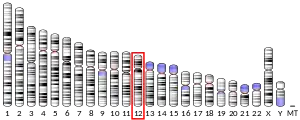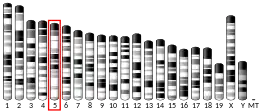| KSR2 | |||||||||||||||||||||||||||||||||||||||||||||||||||
|---|---|---|---|---|---|---|---|---|---|---|---|---|---|---|---|---|---|---|---|---|---|---|---|---|---|---|---|---|---|---|---|---|---|---|---|---|---|---|---|---|---|---|---|---|---|---|---|---|---|---|---|
| |||||||||||||||||||||||||||||||||||||||||||||||||||
| Identifiers | |||||||||||||||||||||||||||||||||||||||||||||||||||
| Aliases | KSR2, kinase suppressor of ras 2 | ||||||||||||||||||||||||||||||||||||||||||||||||||
| External IDs | OMIM: 610737 MGI: 3610315 HomoloGene: 45469 GeneCards: KSR2 | ||||||||||||||||||||||||||||||||||||||||||||||||||
| |||||||||||||||||||||||||||||||||||||||||||||||||||
| |||||||||||||||||||||||||||||||||||||||||||||||||||
| |||||||||||||||||||||||||||||||||||||||||||||||||||
| |||||||||||||||||||||||||||||||||||||||||||||||||||
| |||||||||||||||||||||||||||||||||||||||||||||||||||
| Wikidata | |||||||||||||||||||||||||||||||||||||||||||||||||||
| |||||||||||||||||||||||||||||||||||||||||||||||||||
The KSR2 gene (also called "The fat gene") is Kinase suppressor of ras 2 it is a protein that in humans is encoded by the KSR2 gene.[5] KSR2 mutation effects in humans by obesity and because KSR2 gene reduces the ERK signaling and it reduces glucose and fatty acid oxidation. KSR2 mutation reduces the glucose and fatty acid oxidation process but it makes growth factor "Epidermal growth factor (EGF)" reaction more faster to simulate cell growth and KSR2 cause insulin resistance, KSA2 gene also regulates how the body uses the energy, and it usually causes type 2 diabetes.[6]
References
- 1 2 3 GRCh38: Ensembl release 89: ENSG00000171435 - Ensembl, May 2017
- 1 2 3 GRCm38: Ensembl release 89: ENSMUSG00000061578 - Ensembl, May 2017
- ↑ "Human PubMed Reference:". National Center for Biotechnology Information, U.S. National Library of Medicine.
- ↑ "Mouse PubMed Reference:". National Center for Biotechnology Information, U.S. National Library of Medicine.
- ↑ "KSR2". Entrez Gene.
- ↑ Pearce LR, Atanassova N, Banton MC, Bottomley B, van der Klaauw AA, Revelli JP, et al. (November 2013). "KSR2 mutations are associated with obesity, insulin resistance, and impaired cellular fuel oxidation". Cell. 155 (4): 765–77. doi:10.1016/j.cell.2013.09.058. PMC 3898740. PMID 24209692.
This article is issued from Wikipedia. The text is licensed under Creative Commons - Attribution - Sharealike. Additional terms may apply for the media files.



